Susquehannock Searches to Replace Outdated Technology
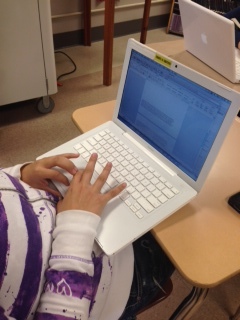
After receiving feedback, administrators may decide to replace the macbooks with updated laptops. Photo by Abigail Bentz
November 10, 2014
Changes regarding Susquehannock technology are underway, but not before research is completed, including a student pilot study.
The high school has several carts of laptops shared between departments; however, the macbooks are seven going on eight years old making them overdue for replacements. While students have been successfully using the laptops, Susquehannock has begun to look at other options for replacements that propose benefits financially and academically. Those options include the ipad and the chromebook, two devices that surrounding schools, Eastern, Hanover, Central and Suburban, are already experiencing success with.
Principal Kevin Molin believes these devices would allow for a more user-friendly and mobile option in comparison to the laptops. Each student would be able to take their individual device home giving them the ability to not only interact for academic purposes, but also personal. With students given the ability to take their devices outside of school, it is inevitable that breakage will occur.
Molin and the administration have yet to decide how they will handle damaged devices, but they are considering how other schools are approaching it.
“They [students] will be responsible for breakage…” said Molin. “Some schools that we’ve looked in to there’s an insurance policy. Some just have a flat fee to repair, but research that we’ve gotten from Central, Hanover and Suburban is that breakage, other than a screen from time to time, is very minimal.”
The goal is to give students as well as teachers more access to technology. While some classrooms are equipped with smart boards operating with projections screens, others including the language and math department rooms are limited with technology. Some teachers may prefer to operate without a smart board; however, a device for each student will benefit every teacher when it comes time to reach their students out of the classroom. The devices will establish an equal playing field with regards to accessing Blackboard and Google docs, systems that the high school has begun to use more frequently during recent years.
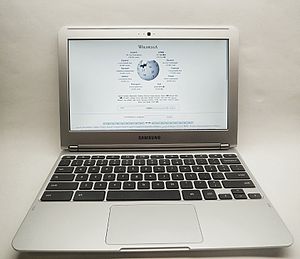
While some may say it could break the teacher-student bond, Molin believes the increased interaction via technology will further relationships.
“I think you’ll find a tighter relationship [between teachers and students]…” said Molin. “The whole idea of technology is not to eliminate the teacher but to infact enhance the teaching role in being able to work with students….the idea being to have students actually do real world type of projects and to be able to interact with each other.”
Another question proposed will be the monitoring policy. The tech department currently monitors all computers and laptops used in the school. When individual devices are distributed, they will continue to do the same. The blocked information on the computers located in the school will be the same information blocked on every personal device at least until 2:44, when the filter may become less strict.
Molin views the filter system as a way to keep students safe on and off the school campus.
“The way the system will be set up is even when they take the device home, it will still come through our filter system,” said Molin. “There will be some differences in filtering between school hours and non school hours. In Hanover’s case, which I think is a good example, after three o’clock Facebook opens up.”
Students are being able to voice their opinions about this change through the pilot program occurring throughout the upcoming months. Juniors taking a variety of core classes were selected to test the devices. The 25 students participating were chosen to represent a variety of types of students that take a wide range of classes. Ipads were distributed to the group on November 3. They will keep the ipad for three weeks and then be given a chromebook for the weeks between Thanksgiving break and the holidays. During this time, they must use the devices in all of their classes as a replacement to their typical pen and paper notebooks. Their feedback following the experience will assist in the final decision.
Junior Brianna Fitzgerald, participating in the test, is looking at the change as a good idea to prepare students beyond high school.
“I think that since we’re going into a technology lifestyle, I feel like being able to use it at school will help us further out in our careers,” said Fitzgerald.
Preparing for the future is just one of the many benefits of every student obtaining a device. Juniors Kevin Clapp and Nate Trego are two more of the students currently carrying ipads through the halls.
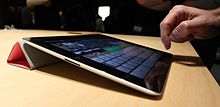
Trego sees the change as an opportunity to stay organized.
“You aren’t using any paper, so you wont have to worry about losing anything,” said Trego.
While almost all of the test study students are excited about the change, students like Fitzgerald are a bit concerned about how the classroom environment will be altered.
“I think it’s going to separate [the relationship between teachers and students] because were always going to be on the ipads [or Chromebooks]. I feel like they’re might not be talking discussions and more online,” said Fitzgerald.
On the other hand, Clapp feels like it is still up to the staff to get their students involved.
“I don’t think it, [the relationship] will change as long as they [students] are still engaged in discussion and not just focused on the ipads,” said Clapp. “As long as they [the teachers] can connect the lesson to the ipad or chrome book, I think it will be fine.”
Administration will be weighing the pros and cons of every option, financially and academically, before making their choice.

The idea of students creating will be a factor in Molin’s final argument.
“The ultimate question that needs to be answered is what device gives students the ability to create information,” said Molin. “A phone can consume information, but what device is going to give the students a chance to create information.”
After feedback from students and further research, the administration will come to a conclusion as to which device will replace laptops, or if the laptops will be replaced at all.



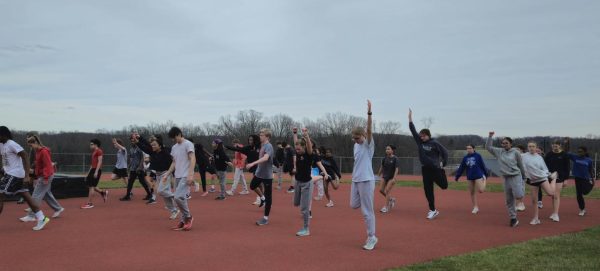
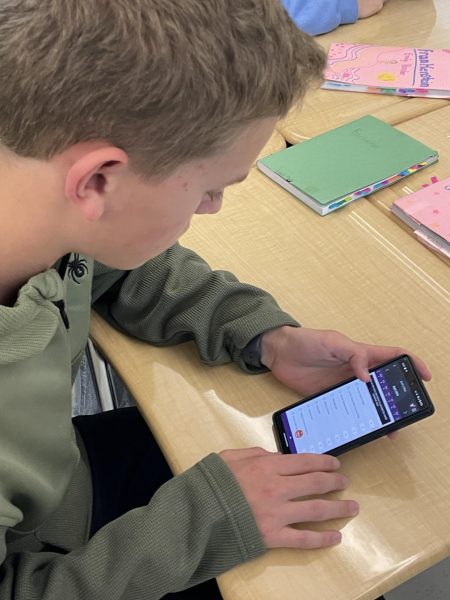




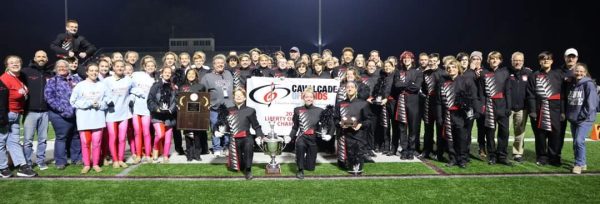
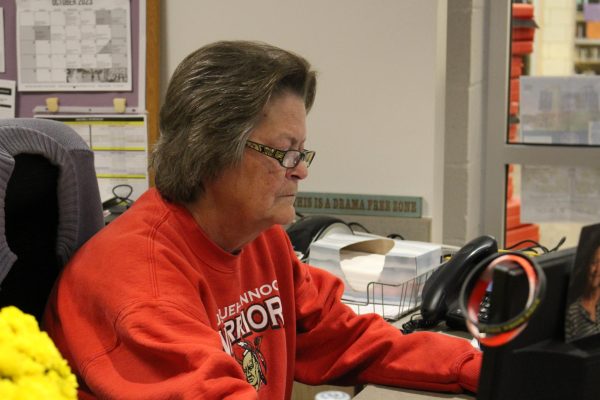

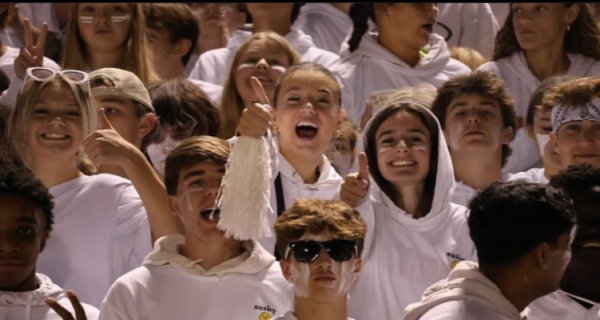
Dough Walters • Feb 5, 2015 at 2:07 pm
I think this is a great article.